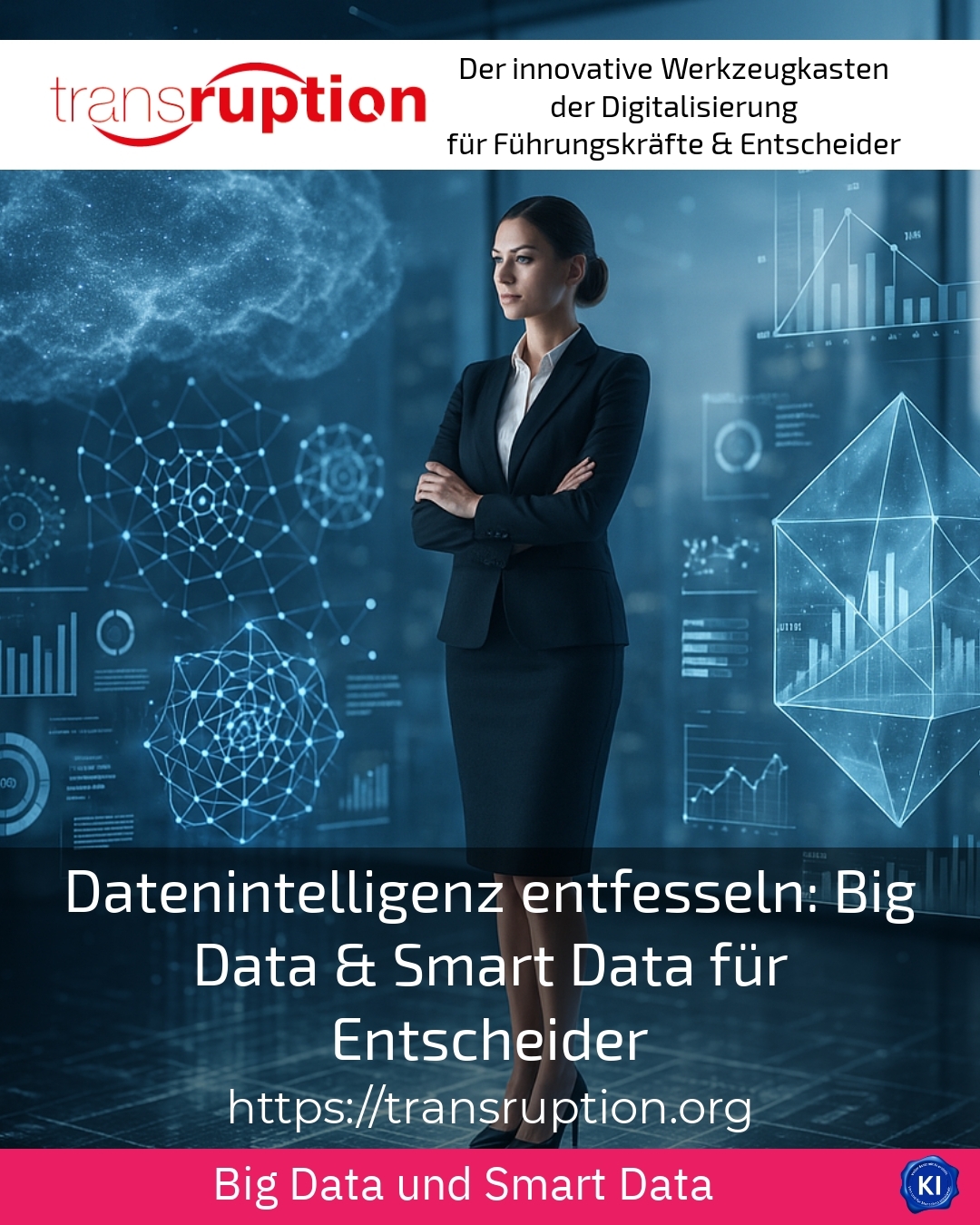Data intelligence is no longer a vision of the future, but a necessity for modern companies. Especially in the age of big data and smart data, decision-makers are faced with the challenge of collecting, understanding and meaningfully utilising huge amounts of information. Data intelligence helps to gain valuable insights from this flood of data and thus make strategic decisions in a more secure and targeted manner.
Data intelligence: the key to dealing with big data
Big data describes large, diverse and rapidly growing volumes of data from various sources - from sensors and customer data to social media posts. This enormously broad spectrum of data requires advanced technologies and methods to store and analyse it in a meaningful way. Companies in manufacturing, retail or the financial sector are faced with the daily problem of quickly losing track of the vast amount of data.
One manufacturer from the automotive industry, for example, reports that the collection of machine data from several production lines alone generates millions of data points within seconds. However, this data is hardly usable without targeted analyses.
Companies in the retail sector also collect huge amounts of data via customer cards, online orders and web tracking. Although this data contains valuable information about purchasing behaviour and trends, it is often unsorted and unstructured. Dealing with big data is therefore a challenge in which data intelligence helps to ask the right questions and set priorities.
In the financial sector, on the other hand, large data sets are used for risk assessments, fraud detection or market analyses. However, only through intelligent filtering and processing can the volume of data be transformed into usable insights that support timely and precise decision-making processes.
Smart data as the processing level of data intelligence
The next step after big data is smart data. This is the filtered and high-quality information that has been extracted from the raw data. Smart data is more relevant, more accurate and often enables faster, more informed decisions. This is particularly valuable for decision-makers who need to rely on reliable facts in complex situations.
A logistics service provider was able to optimise route planning through targeted smart data analyses of its sensor data, thereby reducing fuel costs. This was achieved by filtering out only the relevant journey times and traffic flow data from the masses.
Smart data solutions are used in smart city projects to control traffic flows in real time or to increase the energy efficiency of buildings. Here it becomes clear how important information is extracted from very extensive data sets so that local authorities can make better infrastructure decisions.
In the healthcare sector, smart data analyses support the early detection of diseases by filtering large patient data sets and linking them to medical expertise. This relieves the burden on doctors and increases the quality of care at the same time.
Practical tips for decision-makers on the use of data intelligence
A clear strategy is essential: decide early on which business areas can benefit from data intelligence. Defining clear goals helps to include suitable data sources and limit the amount of data.
Secondly, the use of specialised tools that automatically transform big data into smart data is recommended. AI-based systems help to recognise patterns and only provide relevant information to specialist departments or management, for example.
Thirdly, organisations should promote the qualifications of their employees. Training in data analysis, interpretation and data-driven decision-making is essential. This enables teams to use data intelligence confidently and develop ideas for optimisation.
BEST PRACTICE at the customer (name hidden due to NDA contract) A leading retail company has significantly refined its customer database by implementing data intelligence: the focus was no longer just on quantities or sales, but on analysing actual customer behaviour online and offline. This enabled the sales department to develop customised offers that resulted in sales increases of up to 15 % in selected segments.
Data intelligence in the everyday life of decision-makers: Opportunities and challenges
Decision-makers are under pressure to react ever faster to market and customer changes. Data intelligence gives them a decisive advantage because it enables them not only to collect data, but also to use it in a targeted manner to answer important questions.
In the manufacturing industry, managers often report on the complexity of analysing data from production facilities. Without smart data, they run the risk of drawing the wrong conclusions from incomplete or unprocessed big data. Data intelligence provides support by correctly processing and interpreting the basis for decision-making.
In service companies, on the other hand, data intelligence is used to better understand customer requirements and design customised services. This strengthens customer loyalty and creates competitive advantages.
At the same time, decision-makers must not forget that data intelligence also brings challenges: data protection, data quality and technical integration must always be taken into account. In our experience, clients report that close dialogue between specialist departments, IT and management is crucial in order to optimally exploit the potential of data intelligence.
My analysis
Today, data intelligence is indispensable for companies that want to improve their decision-making processes. The combination of big data and the smart data obtained from it creates a foundation on which reliable and contextualised findings can be generated. Targeted filtering and analysing turns the flood of data into a valuable resource. This gives decision-makers the impetus to implement projects based on data and design sustainable business models. This is supported by the networking of technologies, tools and expertise - because data intelligence is always a team process.
Further links from the text above:
Difference Between Big Data and Smart Data - Esa Automation
Big Data vs. Smart Data: Key Insights for Operational Optimisation
Big Data vs. Smart Data: Valuable Insights to Optimise Your Operations
For more information and if you have any questions, please contact Contact us or read more blog posts on the topic TRANSRUPTION here.















